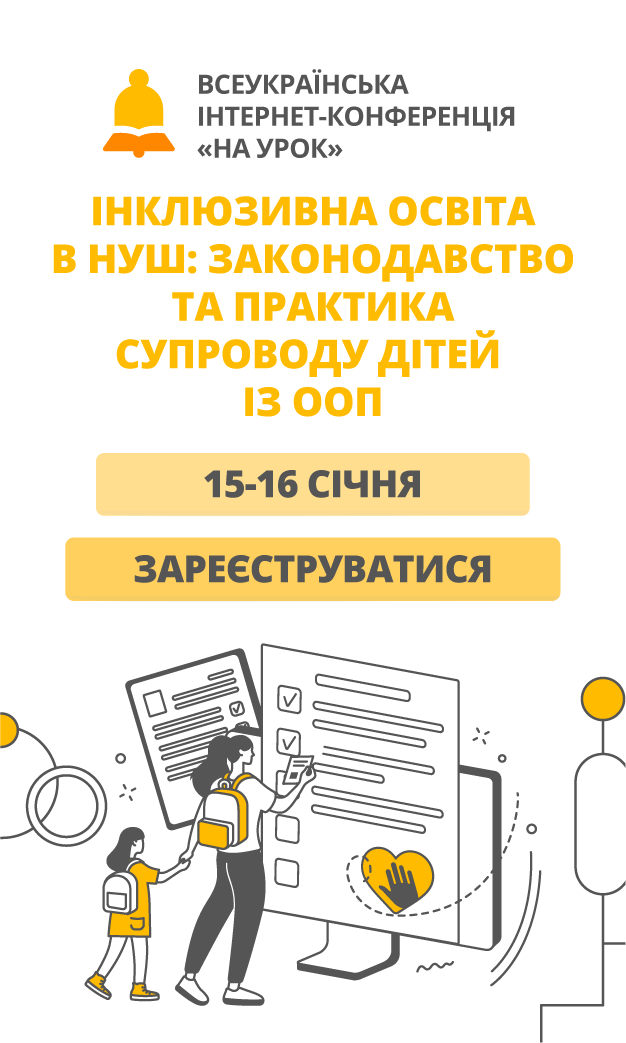Матеріали до уроків "Phonetic Games for Junior Students"
Jaw and tongue games help to develop the pronunciation of some difficult sounds at the beginning of forming phonetic skills. They can make boring and dull work more interesting and involving.
Olha Marchuk,
teacher of English,
school 4,
Zmerynka, Vinnytsia region
Phonetic Games for Junior Students
Jaw and tongue games help to develop the pronunciation of some difficult sounds at the beginning of forming phonetic skills. They can make boring and dull work more interesting and involving.
1. Playing Airplane
This game is used for training the pronunciation of the sound [ v ].
Teacher: Did you ever try to imitate a flying plane? I think you stretched your arms apart, inclined your body a little, and here you are… flying. And how about English children? They do just the same, with a little difference: instead of the Ukrainian sound [ ж ] they say [ v ]. Try and do the way the English children do.
The plane is travelling up in the sky,
vvv – vvv – vvv.
Moving so fast, and ever so high,
vvv – vvv – vvv.
Over the land, and over the sea,
vvv – vvv – vvv.
But we always come back in time for tea,
vvv – vvv – vvv.
2. The Motor Boat
This way we can learn the sound [ t ].
Teacher:And how could you imitate the work of a motor boat? How do the English children imitate it when playing? They believe that the sound [ t ] suits here best. You are surprised, aren’t you? It’s no wonder because the Ukrainian sound [ т ] wouldn’t do here. But only try and say “putt, putt, putt” – [ pΛt ] and the motor will start, and you will be gliding over the river. Let’s try and do it together!
I have a little motor boat.
It turns around the bay,
And when I start my motor boat
It always seems to say:
Putt-putt!
Putt-putt!
But when the boat is under way
And running fast, it seems to say:
Putt-putt-putt-putt, putt-putt-putt!
3.Too Early For Mother
Learning the sound [ t ] pupils can imitate naughty children who tip-toe from the house.
Tip, tip, toe, here we go;
Tip, tip, toe, quiet and slow.
Tip, tip, toe, across the floor;
Tip, tip, toe, by Mother’s door.
4. Mrs. Hen
Sound [ ʧ ] we can train reciting the rhyme “Mrs. Hen”
Chook, chook, chook, chook, chook;
Good morning, Mrs. Hen.
how many chickens have you got?
Madam, I’ve got ten.
Four of them are yellow,
And four of them are brown,
And two of them are speckled red,
The nicest in the town.
5. Little Sleepy Head
This rhyme is very good for learning the pronunciation of the sound [ ͻ: ]. Imagine that you want to sleep very much.
They call me Little Sleepy Head!
I yawn at work, I yawn at play!
I yawn and yawn and yawn all day.
Then take my sleepy yawns to bed!
That’s why they call me Sleepy Head.
6. Little Brown Rabbit
Sounds [ h ] and [ p ] are quite difficult for Ukrainins. The English people exhale the sound
[ h ] and the sound [ p ] they pronounce with explosion.
Teacher: Can you show how the rabbit hops? Yes. Let one of you hop like a rabbit and we will say “Hppity hop”, but let us say it very softly.
Little brown rabbit went hippity hop,
Hippity hop, hippity hop.
Into the garden without any stop,
Hippity hop, hippity hop.
He ate for his supper a fresh carrot top,
Hippity hop, hippity hop.
Then home went the rabbit without any stop,
Hippity hop, hippity hop.
7. Row, row, row the boat…
Teacher: Now let’s row the boat and sing a song learning the sound [ r ].
Row, row , row your boat
Gently down the stream;
Merrily, merrily, merrily
Life is… but a dream.
8. The Bells
This game helps to learn to pronounce the sound [ ŋ ].
Teacher: Now let’s learn the way the English imitate the ringing of bells. What is one of the beautiful things about the ringing of bells? I think it’s the fact that you can hear the sound long after you have struck it. Now, play a bell. But don’t forget that bells have different voices. /Children learn this rhyme in roles./
Big bells ring a long, full song,
DING-DONG-DING-DONG!
Small bells ring a clear, sweet song,
Ding, ding, ding, ding
ding, ding, ding!
Wee bells ring a tinkling song,
Ting-a-ling, a-ling, a-ling
a-ling, a-ling, a-ling.
Hear the ringing; here the song,
Ting-a-ling, ding, ding,
ding, ding, dong!
Children also like to sing the following song:
Are you sleeping, are you sleeping,
Brother James, brother James?
Morning bells are ring ng, /2t.
Ding-ding-dong, /2t.
9. Lapping Milk
In order to learn to pronounce the sounds [ θ ] and [ ϑ ] we have to teach children to show the tips of their tongues.
Teacher: Children, have you ever seen a kitten drinking milk? In fact, it doesn’t drink, it laps it. Show it. Oh, what nice kittens you are! Now I’ll recite a rhyme about it and when I say “Lap, lap, lap!”, please, make your kittens lap milk.
Little kitty laps her milk,
Lap, lap, lap!
Her tongue goes out,
Her tongue goes in,
Lap, lap, lap!
Little kitty likes her milk,
Lap, lap, lap!
Oh, see her tongue
goes out and in,
Lap, lap, lap!
10. The Old Grey Goose
Teacher: Look at the goose: it’s stretching out its neck and trying to say something. Can you here anything? No, nothing but hissing [ θ]. Play a goose.
An old grey goose am I.
Th! Th! Th!
I stretch my neck and cry
At puppies passing by!
I like to make them cry!
Th! Th! Th!
When puppies jump and run,
Th! Th! Th!
I think it’s lots of fun!
I’m sure they’d like to be
An old grey goose like me!
Th! Th! Th!
11. Monkey Talk
It’s a nice rhyme for training the sound [ ϑ ].
Teacher: I am sure you can show a monkey very well: the way it makes faces,and the way it speaks. Monkeys in the English Zoo speak English. They pronounce the sound [ϑ] properly. This monkey is angry with the children. They may have hurt him. That’s why the monkey says: “They, they, they.” And it’s a learned monkey he likes old poets: “Thee, thee, thee.”
Little monkey in the tree,
This is what he says to me,
“They, they, they,
Thee, thee, thee.”
Monkey jumps from limb to limb
While I chatter back to him:
“Thee, thee, thee,
They, they, they.”
References :
1. Амамджян Ш.Г. «Играя, учись!», - Киев «Грайлык» - 1994.
2. Верхогляд В.А. «Английские стихи для детей», - М. «Просвещение» - 1986.
3. Стронин М.Ф. «Обучающие игры на уроке английского языка», - М. «Просвещение» -
1984.
1


про публікацію авторської розробки
Додати розробку
